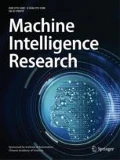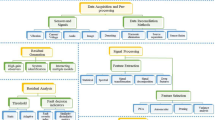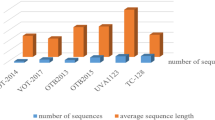Abstract
Supervisory control is a very popular paradigm for computer-controlled systems. Knowledge and tracking the control effect of every control operation is crucial to the control tasks. In the paper, we present a message-array-based mechanism to track control effects in supervisory control software. A novel data type, message array, is designed to efficiently support this tracking mechanism. The operation algorithms, adding algorithm (AA), removing algorithm (RA), and scheduler algorithm (SA) are proposed to operate the tracking messages in message array, which forms the special first input X output (FIXO) strategy of message array. Automatically tracking, recording, and rolling back are the characteristics of our tracking mechanism. We implement this messagearray-based mechanism on the famous human machine interface (HMI) software platform-proficy iFix, and construct experiments to evaluate the performance of the mechanism in various cases. The results show our mechanism can be well satisfied with supervisory control software.
Similar content being viewed by others
References
T. B. Sheridan. Telerobotics, Automation, and Human Supervisory Control, Cambridge, UK: MIT Press, 1992.
K. J. Astrom, B. Wittenmark. Computer-controlled Systems: Theory and Design, Beijing, PRC: Tsinghua University Press, 2002.
D. Xu, M. Tan, X. G. Zhao, Z. G. Tu. Seam tracking and visual control for robotic arc welding based on structured light stereovision. International Journal of Automation and Computing, vol. 1, no. 1, pp. 63–75, 2004.
Q. C. Wang, Y. H. Gong, C. H. Yang, G. H. Li. Robust object tracking under appearance change conditions. International Journal of Automation and Computing, vol. 7, no. 1, pp. 31–38, 2010.
A. Sibersehatz, P. B. Gavin, G. Gagne. Operating System Concepts, 7th ed., John, Wiley & Sons, 2004.
S. W. Chang. Rainbow: Cost-effective Software Architecture-based Self-adaptation, Ph. D. dissertation, Carnegie Mellon University, USA, 2008.
Supervisory control, [Online], Available: http://en.wikipedia.org/wiki/Supervisory_control, November 13, 2010.
SCADA, [Online], Available: http://en.wikipedia.org/wiki/SCADA, November 13, 2010.
L. Lamport. Time, Clocks and the ordering of events in distributed system. Communications of the ACM, vol. 21, no. 7, pp. 558–565, 1978.
S. Sahni. Data Structures, Algorithm, and Applications in C++, New York, USA: Mcgraw-Hill Press, 1999.
Y. Hu, Q. L. Yang, J. C. Xing, P. Wang. Research on the queue-based mechanism of command processing in iFix software environment. Micro-computer Information, vol. 25, no. 10, pp. 37–39, 2009. (in Chinese)
Author information
Authors and Affiliations
Corresponding author
Additional information
Qi-Liang Yang graduated from Engineering Institute of Corps of Engineers, PLA University of Science and Technology (PLA UST), PRC in 1998. He received the M. Sc. degree from PLA UST in 2002. He is currently a lecturer in PLA UST. He is also a Ph. D. candidate in Nanjing University, PRC.
His research interests include computer software and theory, intelligent control, and distributed control system.
Jian-Chun Xing graduated from Engineering Institute of Corps of Engineers, PLA University of Science and Technology (PLA UST), PRC in 1984. He received the M. Sc. and Ph.D. degrees from PLA UST, PRC in 1987 and 2006, respectively. He is currently a professor in PLA UST.
His research interests include intelligent control, artificial intelligence, and information processing.
Ping Wang graduated from Engineering Institute of Corps of Engineers, PLA University of Science and Technology (PLA UST), PRC in 1992. He received the M. Sc. degree from PLA UST in 1996. He is currently an associate professor in PLA UST.
His research interests include intelligent control and fieldbus-based control system.
Rights and permissions
About this article
Cite this article
Yang, QL., Xing, JC. & Wang, P. A message-array-based mechanism for tracking control effects in supervisory control software. Int. J. Autom. Comput. 8, 83–91 (2011). https://doi.org/10.1007/s11633-010-0558-9
Received:
Revised:
Published:
Issue Date:
DOI: https://doi.org/10.1007/s11633-010-0558-9




